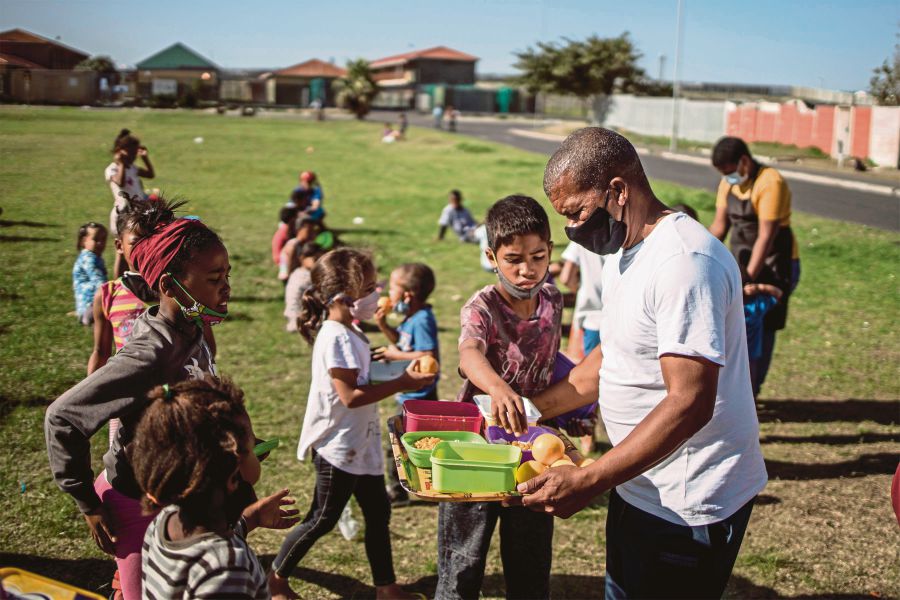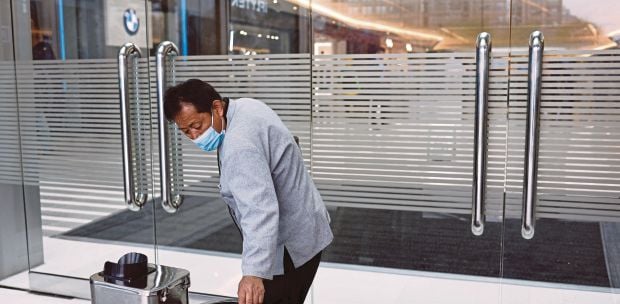IT was a difficult time for many during that first week of the Senegal "lockdown". A full curfew was instituted between 8pm and 6am every night, and even though people could move around during the day time, inter-regional travel was banned and public transports were limited.
In Malaysia, an almost full lockdown was possible, but still painful. For many countries of Africa, it is an impossibility. So many on this continent live a hand-to-mouth existence: if they cannot leave the house, then they will not eat.
A friend of mine explained the situation to me in very real terms. In his neighbourhood, most of the men of the household are daily workers — some are in construction, others peddle their wares on the streets, and yet others try to perform odd-jobs for their daily subsistence.
So these men leave their houses in the morning with the promise that they will bring home some money for the wife to buy groceries for their evening dinner. So if the head of the household does not get any money, there will be no grocery shopping, and there will be no dinner for that night, and the children go to bed hungry.
When your daily meal depends solely on your ability to earn enough for the day's groceries, then life becomes a struggle even in the best of times. And the pandemic was definitely the worst of times. The government stepped in to distribute food necessities, but with a population of 15 million with nearly half below the poverty line pre-Covid, it was always going to be a monumental task no matter how you look at it.
At the very beginning of the pandemic, many expatriates and foreigners fled the country in droves, thinking that they would be better off in France, the United Kingdom, or the United States. Their Senegalese personal staff (drivers, maids) were left to fend for themselves, without pay or aguarantee of continued employment.
At first, life was still bearable because the strong familial ties meant that even if one member of the extended family still had income, the whole family would still eat, albeit in a smaller portion.
The Senegalese did what they did best, they adapted. Bathily, who had been cleaning mosques voluntarily since reaching adulthood decided that even though mosques were not being used, there was no reason why they could not still be cleaned. And in so doing cleansed his soul as well. Funeral rites that saw extra-long procession of mourners were now only witnessed by a handful of close family members, and the bodies buried quickly before other family members could congregate.
Aminata, who had previously worked for a multinational company, used her organisational skills to secure basic necessities for families who fell through the cracks in the bureaucracy and did not get aid. A number of taxi drivers retired their cabs and moved back to the village where the cost of living was not so high, and where there was a better chance of surviving while waiting for restrictions to ease.
Days turned into weeks and weeks into months, and more people found themselves living on the razor's edge of starvation. As the situation became untenable, the normally peaceful people of Senegal took to the streets to demand an easing of the curfew, and a return to normalcy.
After all, neighbouring country Mali had already had two rounds of Parliamentary elections while Senegal remained closed. Fellow Economic Community of West Africa member, Nigeria, whose infection numbers remain high, was already opening up, and South Africa, which had instituted night-time curfew much later than Senegal, had already opened its borders.
By June 6, the president had no choice but to announce an easing of restrictions — later curfew hours (11pm to 5am), and the opening of eateries, allowing its workers to return to work but with social distance rules still in place. Inter-regional travel was also allowed which meant that families that had been separated could now be reunited.
It is more than three weeks since the easing of restrictions, and numbers remain relatively stable at about 100 new cases per day. And while the figures all around the world show the same upwards pattern, one thing is for sure — adapting to life during lockdown may work for a time, but it cannot be a new normal
for many on the African continent.
The writer is a foreign service officer, who writes on international affairs with particular emphasis on Africa






